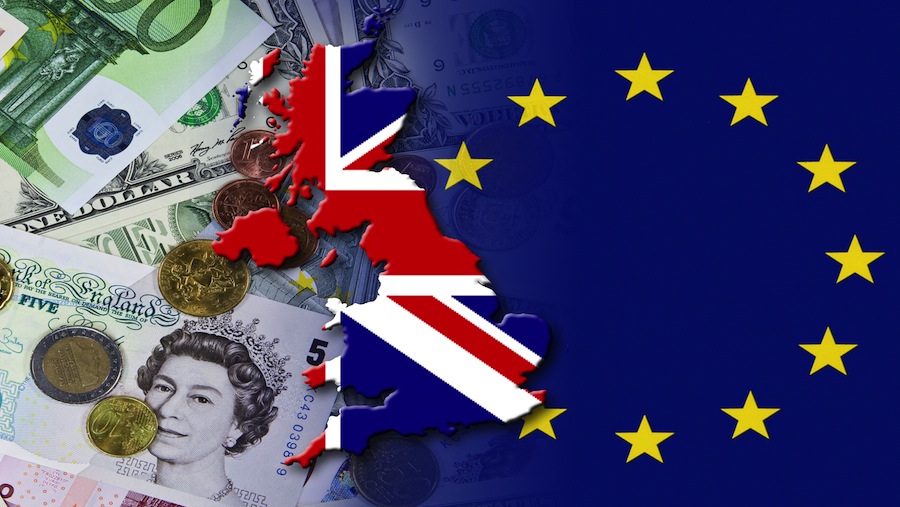EU referendum campaigners clash over NFU Brexit report
 © Martin Moxter/imageBROKER/REX/Shutterstock
© Martin Moxter/imageBROKER/REX/Shutterstock Campaigners have given a mixed reaction to an NFU report examining the potential impact on agriculture of an UK exit from the EU.
The report, which examines the effect of different Brexit scenarios on a range of agricultural sectors, suggests mosts farmers will struggle unless direct payments are maintained.
See also: Farm incomes could plummet outside EU – report
It was commissioned by the NFU from Wageningen University in the Netherlands – recently ranked as the top agricultural university in the world.
Former NFU president Peter Kendall, part of the Farmers Stronger in Britain group, is campaigning for the UK to remain an EU member.
Sir Peter said the study findings were a “further demonstration” of why Britain’s farmers were better off inside the EU.
“The report’s conclusion highlights the most likely outcome for British agriculture if we leave the EU and it makes for depressing reading, with many farms facing a severe loss of income.
“This is exactly why Britain and our farmers will be better off if we remain in Europe – with full access to the single market giving us the best free-trade deal of all.
“Leaving risks higher prices for families to put food on the table, lower incomes for hardworking farmers, and years of uncertainty creating a damaging economic shock.”
See also: All the latest EU referendum coverage from Farmers Weekly
But Defra minister George Eustice, who is campaigning for the UK to leave the EU, said the report showed farmers had nothing to fear by voting for leave.
“These types of reports always say more about the economic model and the assumptions that underly it than they necessarily do about real life,” he said.
The most likely scenario – maintaining support at current levels while introducing a free trade agreement – actually resulted in an improvement in farm incomes, said Mr Eustice.
“The report ignores the fact that we would have lower burdens of regulation and better, more effective policy design if we took back control.”
“What the report does show is that after we vote leave and conclude a free trade agreement while continuing to support UK farming, farm incomes actually increase.”
Ukip MEP and Norfolk farmer Stuart Agnew suggested the NFU should have commissioned the study from UK researchers rather than from a Dutch university.
But the document was still a useful summary what might happen following Brexit, said Mr Agnew, who is campaigning for the UK to leave the EU.
“There is a lot of uncertainty in what trade model will be adopted and in how farmers and consumers will respond,” he said.
“However, what is certain is that under the free trade model and [World Trade Organization] model presented in the paper there are opportunities for farmgate prices to rise.”
No one on the In or Out campaigns was arguing for support payments to be cut, said Mr Agnew, and the paper highlights how important those payments would remain.
This was particularly so for the “vulnerable” livestock sectors.
But there was little recognition in the document of the strength of the position that the UK was in regarding its trade deficit with the EU, said Mr Agnew.
“This will be a major factor in the negotiations,” he said.
